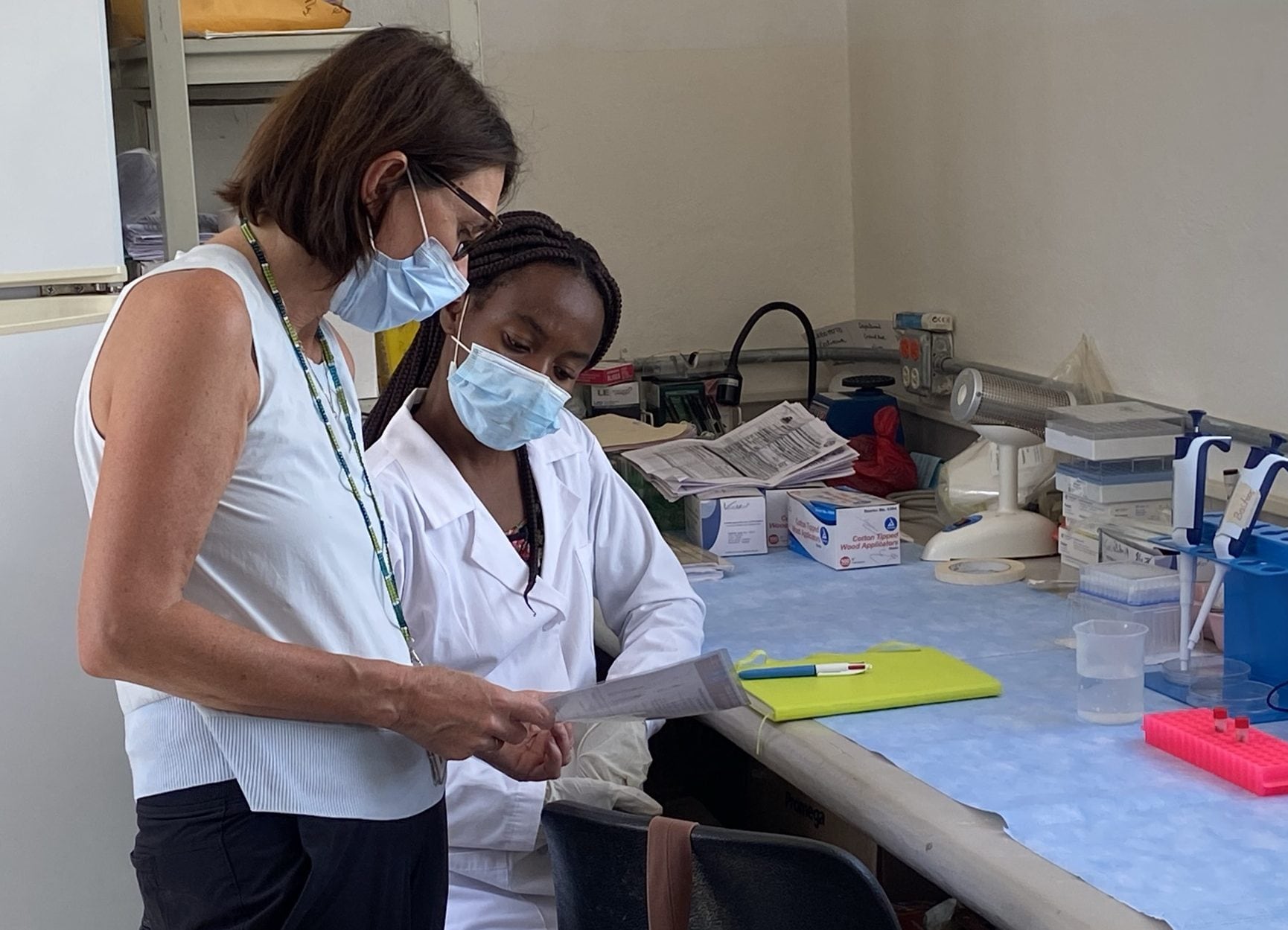Emergency Response

Training in Rapid Diagnostic Testing (RDT) for cholera in Les Cayes, Sud Department on October 21, 2021, with Ministry of Public Health and Population (MSPP) nurses and laboratory technicians. Photo: Chung H. (Ken) Chen/CDC
The Global Disease Detection (GDD) Operations Center works with internal CDC and international partners to facilitate rapid response to an outbreak or event as designated by the Internal Health Regulations 2005. In 2006, the GDD Operations Center established the Emergency Operations Response (EOR) fund for the purpose of enabling the rapid delivery of international disease outbreak assistance in situations where financial constraints limit the response capabilities of a CDC program. With support from CDC’s Emergency Operation’s Center, this CDC-wide resource minimizes administrative steps by triggering an immediate and coordinated response.
On several occasions, international travel occurred by CDC subject matter experts (SMEs) at the beginning of a CDC emergency response upon receiving a request for funding. For example, in 2022, four CDC SMEs were deployed to the Gambia to support response to acute renal failure in children, enabling staff to work with the ministry of health to the sources of the outbreak. Not only does the EOR fund support deployments for CDC subject matter experts to respond in country to the outbreak or event; this fund has also been used to enable the shipment of supplies for needs such as laboratory testing and specimen collection. This allows deployed CDC staff to have the resources they need to be able to effectively respond while they are in the field.
Between 2006-2022 the GDD Operations Center used the EOR fund to support CDC’s response to an international outbreak or event in over 70 countries.

Dr. Ray Arthur of CDC at a GOARN steering committee meeting, Geneva, June 2019 Photo: WHO
One of CDC’s most valuable assets in supporting emergency responses to events around the world is its global partnerships. The Global Outbreak Alert and Response Network (GOARN) is a collaboration of over 270 existing institutions and networks across 90 countries, constantly alert and ready to respond. This enables human and technical resources to be pooled together for rapid identification, confirmation, and response to outbreaks of international importance.
CDC was one of the 60 founding institutions of GOARN in 2000 and continues to be an important partner and leader in the network providing response staffing, training, and leadership to the organization. As CDC’s liaison to GOARN, the GDD Operations Center detects, assesses, and verifies events, and responds to requests for international assistance to control disease outbreaks. The GDD Operations Center identifies and coordinates the deployment of CDC subject matter experts for global outbreak responses that are under GOARN. Analysts from the GDD Operations Center communicate directly with many GOARN partners and attend weekly operations calls to stay informed on any new epidemic intelligence. WHO acts as the Secretariat and supports GOARN operations.
Real-time data is essential to inform emergency response but gathering and analyzing that data can be difficult. GDD Operations Center collaborated with WHO and other public health partners with experience in outbreak response to develop a better system for capturing epidemiologic data during public health emergencies, and in 2019 the Go. Data tool was launched This tool is managed by GOARN and coordinated by the World Health Organization.
Go.Data is flexible and can be used for any outbreak that requires the collection of infection and exposure data, including Ebola and COVID-19. As a partner of Go.Data, GDD Operations Center staff have supported public health entities in the United States, Canada, and elsewhere interested in adopting the software by providing information, demonstrations, and training. The team also participates on projects related to improving the software, including data analytics, mapping, and integration with existing systems.